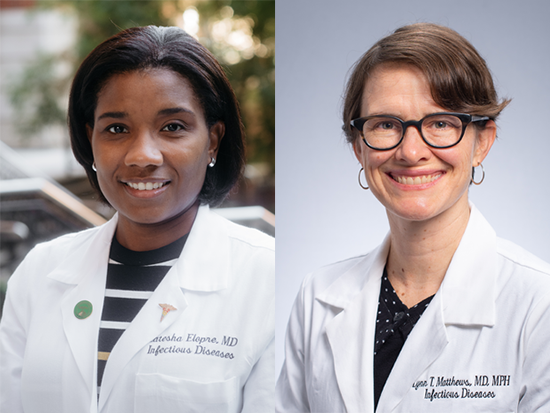 The NIH grants will fund two studies evaluating the role of behavioral, geographic and demographic vulnerabilities in relation to HIV acquisitions among cis- and transgender women in the South.The South is home to 38 percent of the United States population but over half of HIV cases. Additionally, 55 percent of women diagnosed with HIV in the United States live in the South.
The NIH grants will fund two studies evaluating the role of behavioral, geographic and demographic vulnerabilities in relation to HIV acquisitions among cis- and transgender women in the South.The South is home to 38 percent of the United States population but over half of HIV cases. Additionally, 55 percent of women diagnosed with HIV in the United States live in the South.
The National Institutes of Health awarded a combined $19.5 million to researchers at the University of Alabama at Birmingham to study HIV acquisition among women in the South. The grants will fund two studies evaluating the role of behavioral, geographic and demographic vulnerabilities in relation to HIV acquisition.
“We’ve long known that HIV cases among women are higher in the South than in other parts of the country,” said Latesha Elopre, M.D., associate professor in the UAB Division of Infectious Diseases in the Marnix E. Heersink School of Medicine. “These grants will be a major step in understanding why and finding ways to reduce the impact of HIV on this vulnerable population.”
The AWARE Project
Mirjam-Colette Kempf, Ph.D., professor in the UAB School of Nursing, is co-principal investigator on the AWARE project, which was awarded $15 million. The project will enroll a national digital cohort of 1,800 HIV-negative women and investigate how multiple factors impact the risk of acquiring HIV and other sexually transmitted infections.
 Mirjam-Colette Kempf, Ph.D.
Mirjam-Colette Kempf, Ph.D.
Photography: Frank Couch“I am excited to be working among this team of investigators to better understand women’s vulnerabilities to HIV acquisition,” Kempf said. “Looking at factors beyond individual level factors, which have failed to understand women’s vulnerabilities to HIV acquisition, will have the potential to build a knowledge base that will help us in the development of effective prevention programs for women in the future.”
Kempf’s previous research has focused on HIV health services and outcomes research with particular emphasis on psychosocial barriers of access to care and health care disparities among women living with HIV in the rural South. Most recently, she received a seven-year $20.6 million NIH grant to study the impact of chronic health conditions that affect people living with HIV.
Kempf will work alongside co-principal investigators Rebecca Schnall, Ph.D., from Columbia School of Nursing and Amy Johnson, Ph.D., at Lurie Children’s Hospital.
The Camellia Project
Along with co-principal investigator Lynn Matthews, M.D., associate professor in the UAB Division of Infectious Diseases, Elopre will co-lead the second study, the Camellia Project, which received $4.5 million. It will examine factors associated with STI and HIV infections, as well as access and utilization of pre-exposure prophylaxis, or PrEP, among cis- and transgender women especially vulnerable to diagnosis within the state of Alabama.
 Latesha Elopre, M.D., and Lynn Matthews, M.D.
Latesha Elopre, M.D., and Lynn Matthews, M.D.
Photography: Steve Wood and Lexi CoonElopre says that, despite the availability of effective HIV-prevention tools such as PrEP, there are significant disparities among communities of color, particularly among women in the Deep South.
“The rate of HIV infection is 10 times higher for Black women compared to white women; however, PrEP utilization remains low,” Elopre said. “Current algorithms to determine PrEP eligibility demonstrate poor predictive power for women, with an estimated less than 7 percent currently eligible for PrEP.”
UAB will collaborate with HIV-prevention investigators from the Alabama Department of Public Health, University of North Carolina-Chapel Hill, UAB Centers for AIDS Research and Social Scientific Systems.
Both grants were awarded by the National Institute of Allergy and Infectious Diseases, National Institute on Alcohol Abuse and Alcoholism, the Eunice Kennedy Shriver National Institute of Child Health and Human Development, National Institute on Drug Abuse, and the National Institute of Mental Health.